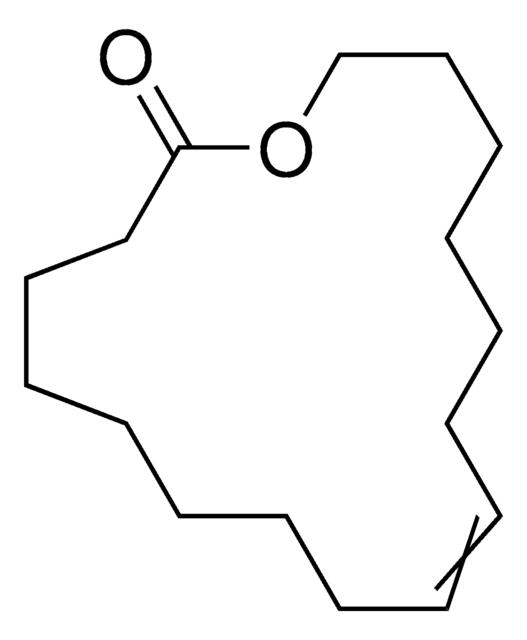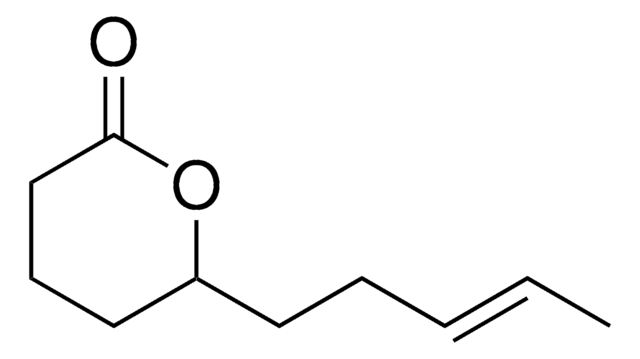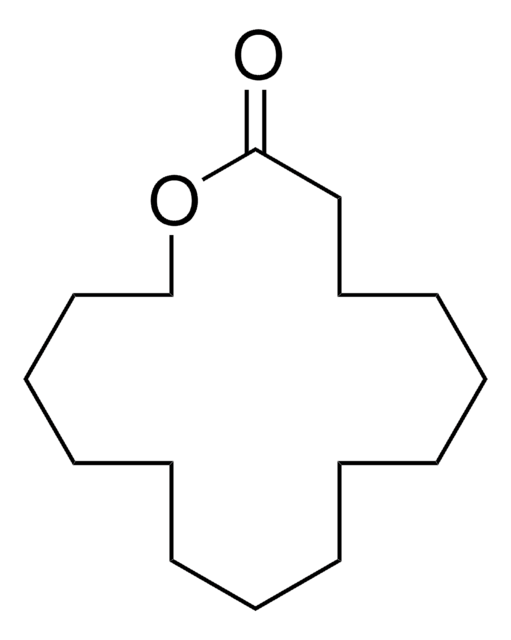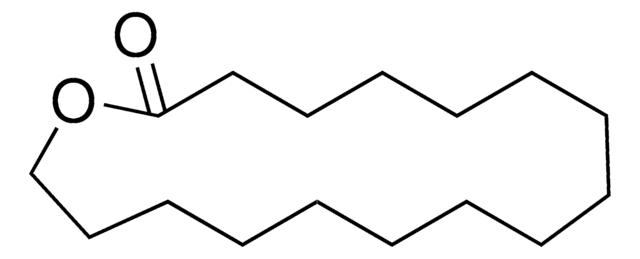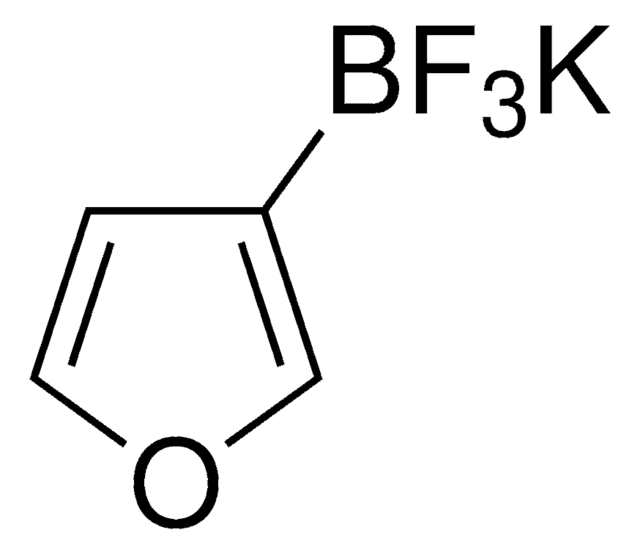W255505
ω-6-Hexadecenlactone
≥98%
Synonym(s):
ambrettolide
About This Item
Recommended Products
biological source
synthetic
Quality Level
Agency
meets purity specifications of JECFA
reg. compliance
FDA 21 CFR 117
FDA 21 CFR 172.515
Assay
≥98%
refractive index
n20/D 1.479 (lit.)
bp
185-190 °C/16 mmHg (lit.)
density
0.956 g/mL at 25 °C (lit.)
application(s)
flavors and fragrances
Documentation
see Safety & Documentation for available documents
food allergen
no known allergens
Organoleptic
soapy; sweet
SMILES string
O=C1CCCC\C=C\CCCCCCCCCO1
InChI
1S/C16H28O2/c17-16-14-12-10-8-6-4-2-1-3-5-7-9-11-13-15-18-16/h4,6H,1-3,5,7-15H2/b6-4+
InChI key
HMWPDRYGIBLSHB-GQCTYLIASA-N
Related Categories
General description
Application
- RIFM fragrance ingredient safety assessment, ψ-6-hexadecenlactone, CAS Registry Number 7779-50-2.: This study conducted a comprehensive safety assessment of ψ-6-hexadecenlactone as a fragrance ingredient. The research concluded that this compound is safe for use in fragrance products under the conditions evaluated (Api et al., 2024).
- Simple magnesium alkoxides: synthesis, molecular structure, and catalytic behaviour in the ring-opening polymerization of lactide and macrolactones and in the copolymerization of maleic anhydride and propylene oxide.: This study explored the synthesis and catalytic behavior of magnesium alkoxides, including their efficacy in ring-opening polymerization of macrolactones like ψ-6-hexadecenlactone. The findings highlight their potential in producing biodegradable polymers (Wannipurage et al., 2023).
- One-Pot Terpolymerization of Macrolactones with Limonene Oxide and Phtalic Anhydride to Produce di-Block Semi-Aromatic Polyesters.: This research demonstrated a novel method for the terpolymerization of macrolactones, including ψ-6-hexadecenlactone, to create innovative semi-aromatic polyesters with potential applications in advanced material science (D′Auria et al., 2022).
- Fragrance material review on ψ-6-hexadecenlactone.: This review summarized the existing data on ψ-6-hexadecenlactone, focusing on its use in fragrance products and providing a detailed analysis of its safety and efficacy as a fragrance ingredient (McGinty et al., 2011).
Disclaimer
Signal Word
Warning
Hazard Statements
Precautionary Statements
Hazard Classifications
Eye Irrit. 2
Storage Class Code
10 - Combustible liquids
WGK
WGK 2
Flash Point(F)
235.4 °F - closed cup
Flash Point(C)
113 °C - closed cup
Personal Protective Equipment
Regulatory Listings
Regulatory Listings are mainly provided for chemical products. Only limited information can be provided here for non-chemical products. No entry means none of the components are listed. It is the user’s obligation to ensure the safe and legal use of the product.
FSL
Group 4: Flammable liquids
Type 3 petroleums
Hazardous rank III
Water insoluble liquid
JAN Code
W255505-1KG:4548173970424
W255505-100G:4548173970417
W255505-BULK:
W255505-25G:
W255505-SAMPLE:
W255505-VAR:
Choose from one of the most recent versions:
Already Own This Product?
Find documentation for the products that you have recently purchased in the Document Library.
Customers Also Viewed
Our team of scientists has experience in all areas of research including Life Science, Material Science, Chemical Synthesis, Chromatography, Analytical and many others.
Contact Technical Service